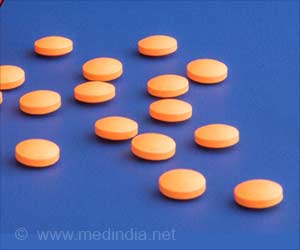
‘Through this study, the need for detailed investigations of cardiovascular physiology in severe sepsis is being highlighted, so that we come up with specific therapeutic strategies to avoid new-onset heart disease and thereby reduce deaths.’
Tweet it Now
The findings, published in the American Journal of Cardiology, show that the frequency, characteristics, and outcomes of patients with severe sepsis who develop cardiovascular events are not well-known due to a lack of large epidemiologic studies in this population.UAB’s Nirav Patel, M.D., first author of the article, designed and conducted the analyses for the study.
“Sepsis has been recognized as an important cause of cardiovascular morbidity and mortality in the United States,” he said. “However, there is a lack of comprehensive exploration on new onset of cardiovascular disease and its impact on in-hospital deaths among adults with severe sepsis.”
Sepsis is a systemic inflammatory response to known or suspected infection. Severe sepsis is a form of sepsis that further involves organ dysfunction. Utilizing the “big data” from the New York State Inpatient Database, Patel and investigators from UAB summarized the incidence of cardiovascular disease and hospital deaths among patients admitted with severe sepsis.
As part of the study, researchers conducted a population-based assessment of incident cardiovascular events occurring in patients with severe sepsis and the effect of these cardiovascular events on in-hospital mortality.
Advertisement
Increasing age, white race, male sex, history of heart failure and an increasing number of organs’ dysfunct4-ion were important factors related to the new onset of cardiovascular disease in patients with severe sepsis. The occurrence of cardiovascular disease in the setting of severe sepsis was linked with 29 percent higher odds of in-hospital deaths.
Advertisement
“The inflammatory response to severe infection in sepsis results in physiologic, biologic and biochemical dysfunction, which may lead to an increase in the risk of cardiovascular disease,” said senior author Pankaj Arora M.D., an assistant professor in UAB’s Division of Cardiovascular Disease. “Current critical care and cardiology societal guidelines from the International Guidelines for Management of Sepsis and Septic Shock, American College of Cardiology, and American Heart Association lack specific recommendations for surveillance and treatment on new onset of cardiovascular disease in sepsis.”
Arora says he sees patients admitted with severe sepsis in intensive care units develop new-onset cardiovascular manifestations frequently, but the cumulative burden has not been well-characterized in the past. Moreover, in-hospital mortality in severe sepsis has not declined in the last few decades. Arora says their work highlights the need for sepsis treatment protocols to be tailored for early recognition and prompt treatment of cardiovascular manifestations.
Arora also emphasizes the need for detailed investigations of cardiovascular physiology in severe sepsis to target specific therapeutic strategies to avoid the new onset of cardiovascular disease and, subsequently, reduce deaths.
Source-Newswise















